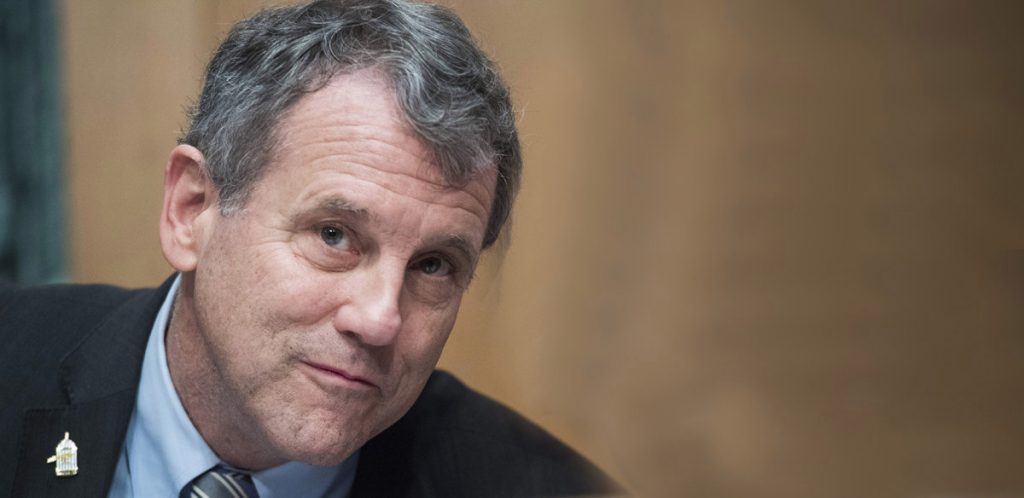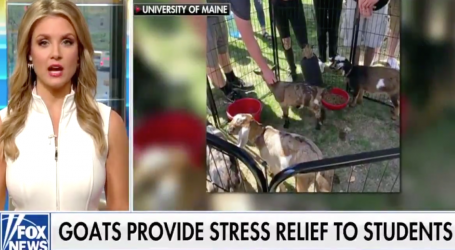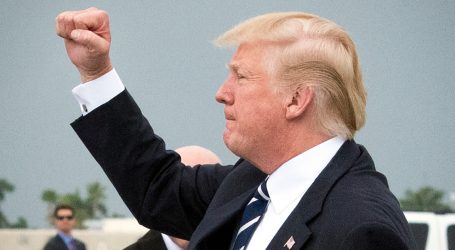Could President Sherrod Brown Revive the Labor Movement?
Tom Williams/Congressional Quarterly/Newscom via ZUMA
Looking for news you can trust?Subscribe to our free newsletters.
Over at the mothership, Kara Voght has a nice profile today of Ohio Sen. Sherrod Brown:
Brown spent many Fridays at the local steel and autoworkers unions, where he learned about the financial squeeze that workers endured. “I heard some talk about their kids and grandkids and making enough and working overtime so they could send their kids to Ohio State,” he says….“Members of the Senate don’t have a lot of time to sit around a union hall for two hours on a Friday, but we’ve got to make those forays into that part of America,” Brown explains as we sit in the conference room of his Senate office.
….Donna West, the chair of Nevada’s Clark County Democrats—home to one of the most politically active unions with overwhelmingly Latino membership—thinks a campaign centered on workers still might be the ticket. “We’re looking for someone who’s pro-union—they want to see a raise in the minimum wage, workplace protections, and paid family leave,” she explained. “It doesn’t matter who you are.”
If you’re curious about Brown and whether he might run, the whole piece is worth a read. The one thing I wish it had focused on more is Brown’s deep-in-the-bones support of labor unions. All Democrats in the progressive wing of the party support universal health care, a $15 minimum wage, child care, and so forth. And of course they support unions. But unions usually just get name checked along with all the other stuff. Brown really believes in unions, and that’s what sets him apart from other progressives.
It’s also what attracts me to him. When it comes to domestic policy, most progressive candidates are pretty interchangeable. When the time comes to choose one, I’ll probably make my choice on other grounds. But unions are about more than just a set of progressive policies. They’re about countervailing power, and they’re the only national institution that’s historically been able to take on corporate America and consistently win.
If Sherrod Brown runs on a platform of not just progressive policies, but of support for the kind of labor power that can make possible an era of progressive policies, that would set him apart from the field. Here’s what I wrote in 2011 about the decline of labor in the second half of the 20th century:
If unions had been as strong in the ’80s and ’90s as they were in the ’50s and ’60s, it’s almost inconceivable that they would have sat by and accepted tax cuts and financial deregulation on the scale that we got. They would have demanded economic policies friendlier to middle-class interests, they would have pressed for the appointment of regulators less captured by the financial industry, and they would have had the muscle to get both.
And that means things would have been different during the first two years of the Obama era, too. Aside from the question of whether the crisis would have been so acute in the first place, a labor-oriented Democratic Party almost certainly would have demanded a bigger stimulus in 2009. It would have fought hard for “cramdown” legislation to help distressed homeowners, instead of caving in to the banks that wanted it killed. It would have resisted the reappointment of Ben Bernanke as Fed chairman. These and other choices would have helped the economic recovery and produced a surge of electoral energy far beyond Obama’s first few months. And since elections are won and lost on economic performance, voter turnout, and legislative accomplishments, Democrats probably would have lost something like 10 or 20 seats last November, not 63. Instead of petering out after 18 months, the Obama era might still have several years to run.
This is something Sherrod Brown might be able to turn around if he got elected on a mandate to revive union power. He’s probably the only one who could.





